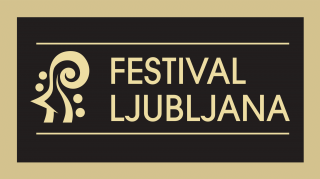Important information
Programme:
Unknown Author: Lightning Csárdás
Johannes Brahms: Hungarian Dance No. 5, WoO 1
Vittorio Monti: Dance
András Farkas: Gypsy Fantasia
Mariano Marquina: Spanish Gypsy Dance
Unknown Author: Cello Solo
Ede Reményi: Fly, My Swallow
Johann Strauss II: Thunder and Lightning, Op. 324
***
Gioachino Rossini: William Tell Overture
Johann Strauss II: Tritsch-Tratsch-Polka, Op. 214
Franz von Suppé: Light Cavalry Overture
Unknown Author: Cymbal Solo
Unknown Author: Societies, Hungarian folk song
Georges Bizet: Carmen Suites, selected movements
Aram Iljič Hačaturjan: Sabre Dance from the ballet Gayane
Gioachino Rossini: Barber of Seville Overture
The Budapest Gypsy Symphony Orchestra is famous both in its native Hungary and around the world. Its prestige is underlined by its inclusion in the so-called Invisible Museum of the Hungarian Spirit, its status as national intangible cultural heritage and, last but not least, its appearance in Guinness World Records as the largest gypsy orchestra in the world. Although this year marks the fortieth anniversary of the first concerts by the Budapest Gypsy Symphony Orchestra, founded following the death of the »king of the gypsy violin« Sándor Járóka, the orchestra has never looked only to the past. Its mission is actually based on intergenerational transfer and on reviving characteristic forms of music-making modelled on the customs of the Roma people. In this way it also ensures the continuity of Roma musical creativity and the performance of this spirited, often highly rhythmic and danceable and always virtuosic music in the symphonic medium, at the highest level. As may be seen from the programme of August’s concert in Ljubljana, the orchestra’s artistic activity is founded on preserving Roma musical tradition, which it successfully interweaves with folk song and the European musical legacy. Some of the greatest composers of past centuries – including Franz Liszt, Béla Bartók, Johannes Brahms, Georges Bizet, Pyotr Ilyich Tchaikovsky, Zoltán Kodály and the entire Strauss family – frequently incorporated into their own compositions a musical idiom which they believed coincided with the melos or inner melody of this nomadic culture.
- On 18 March 2014, the 100-piece Budapest Gypsy Symphony Orchestra was recognised as a Hungarikum, a term indicating a value worthy of distinction that through its uniqueness and quality highlights a superlative achievement of the Hungarian people.
- György Cziffra, the world-famous Hungarian pianist of Roma origin, frequently attended rehearsals of the orchestra when in Budapest for concerts and later became its honorary president.
- The orchestra’s repertoire is unique and it strives to make the works it performs as accessible and easy to understand as possible.
- Today the orchestra has 138 members. Critics say that there is “something magical” in a performance by the “most famous gypsy orchestra in the world”. The reason lies in the fact that they radiate the same enthusiasm at every concert.



